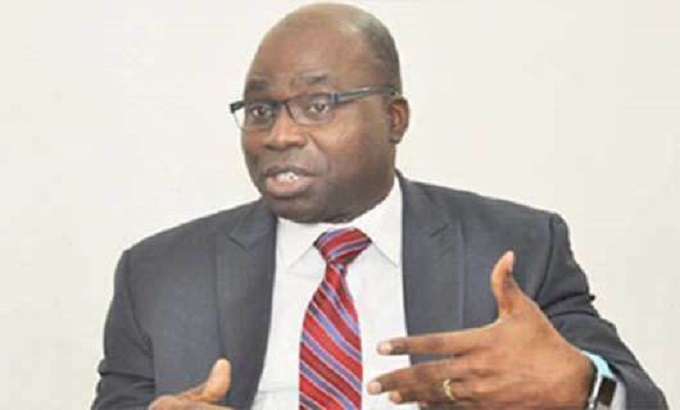ICPC boss: Reliance on enforcement can’t end corruption in Nigeria
The Chairman of the Independent Corrupt Practices and other Related Offences Commission (ICPC), Professor Bolaji Owasanoye has said reliance on enforcement alone cannot put an end to corruption in Nigeria. He highlighted that preventing corruption is more effective and economical than merely enforcing it. The ICPC boss disclosed this at a one day sensitisation workshop […]

The Chairman of the Independent Corrupt Practices and Other Related Offences Commission (ICPC), Prof Bolaji Owasanoye
The Chairman of the Independent Corrupt Practices and other Related Offences Commission (ICPC), Professor Bolaji Owasanoye has said reliance on enforcement alone cannot put an end to corruption in Nigeria.
He highlighted that preventing corruption is more effective and economical than merely enforcing it.
The ICPC boss disclosed this at a one day sensitisation workshop for stakeholders on Bringing about Behavioural Change in Society Using National Ethics and Integrity Policy (NEIP) supported by the MacArthur Foundation, held in Kaduna on Tuesday.
Given the prevailing lack of values like honesty and integrity in Nigeria, Owasanoye stressed that the desired changes cannot be achieved without a shift in citizens’ behaviour.
Nigeria loses N20trn to tax underpayment – Presidential tax c’mtee chair
Resident doctors shelve planned nationwide protest, may call off strike
He urged intentional efforts to transform negative behaviors into positive ones through the cultivation of positive values.
Prof. Owasanoye stated that the fight against corruption cannot solely depend on the law-and-order approach (enforcement).
He acknowledged that citizens should ideally respect laws, uphold commitments, perform duties diligently, and value others, while refraining from government theft, cheating, and deception.
He said many individuals fall short of this ideal, stressing the need for proactive steps to shift negative behaviors towards positive ones through the promotion of positive values.
Malam Balarabe Lawal Abbas, the Secretary to Kaduna State Government (SSG) represented by the Permanent Secretary, Cabinet and Political Affairs, Nuhu Isiaku Buzum emphasised the importance of teaching honesty and integrity values within homes to create a corruption-free society.
The participants at the workshops included civil society organisations, private sector representatives, academics, and civil servants from federal and state ministries and agencies.
